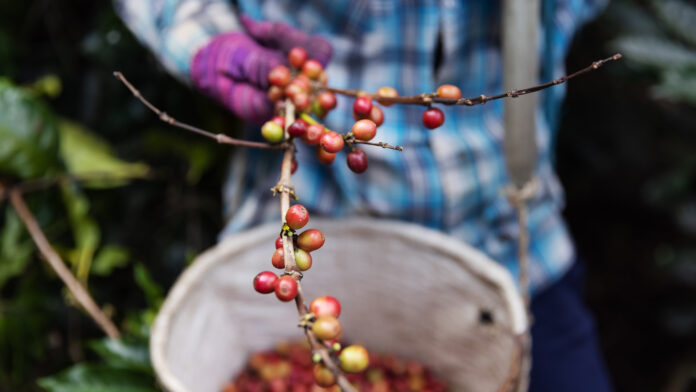Over 400 farmers in coffee-producing areas of Mindanao will benefit from the all-expense paid training of Technical Education and Skills Development Authority (TESDA) and Nestlé Philippines Inc.
In a virtual briefer on Wednesday, TESDA Deputy Director for Operations Lina Sarmiento said the TESDA-registered Coffee Production Level II Program will be piloted in Bukidnon and Sultan Kudarat which will have 200 participants from each area.
In the next phase of the PHP5.1-million tie-up program, Sarmiento said TESDA plans to expand the program in Davao and Batangas.
“The TESDA-Nestlé partnership on upskilling of workers and trainers in coffee production will bring all the necessary interventions and support to coffee farmers, workers and farm owners, and ensure their success and continuous productivity through increased yields of quality coffee beans,” she added.
With the partnership, Sarmiento said TESDA will develop training regulations and competency assessment tools in coffee production, as well as provide guidance in the conduct of coffee-based curriculum.
The agency will conduct a free trainers’ training program, and assessment and certification for the nominated trainers to be identified by Nestlé which will provide a coffee starter toolkit to each trainee, she said.
“A TESDA agricultural school will incubate coffee trees to be nurtured, and the produce will be bought by Nestlé,” she added.
Both parties also agreed to collaborate in the development of education, including web-based programs to target beneficiaries.
TESDA Secretary Isidro Lapeña said they will be giving priority to members of the indigenous peoples (IPs) community and former rebels.
“This partnership will scale the impact of the work we do in TESDA for the farmers and IPs. We also commit our pool of highly-skilled trainors and TESDA facilities as additional learning sites to ensure that we can accommodate as many farmer-beneficiaries as possible,” he said.
Lapeña said TESDA will train trainers for effective conduct of the curriculum and provide a scholarship fund under TESDA’s Program on Accelerating Farm School Establishment (PAFSE) so eligible farmers can enhance their knowledge and skills in planting, maintaining, and harvesting coffee.
Enrollees will learn to adopt an entrepreneurial approach in managing small farm operations of one to 10 hectares, and gain the skills to effectively market their coffee beans to buyers, such as Nestlé.
Its partner, Nestle Philippines, said it is their way of providing support for the Robusta coffee farmers who have been their source for their byproducts.
“We remain steadfast in our commitment to help uplift the lives of Robusta coffee farmers by improving their coffee yields and incomes. The agriculture output of the Philippines has declined since the pandemic, but data from the (Philippine) Statistics Authority showed an increase from the coffee sector so this tells us that we should continue providing these trainings to Filipino farmers so they can have a chance to grow their profit,” Nestlé Philippines chairman and chief executive officer Kais Marzouki said in the same briefing.
TESDA granted a Technical Vocational Education and Training Certificate to Nestlé’s Bukidnon Integrated Coffee Center (BICC) to serve as the hub for all coffee production training to be conducted for farmer beneficiaries sponsored by TESDA scholarships.
The BICC, which stands in Malaybalay, Bukidnon, was established in cooperation with the Department of Agriculture under the National Convergence Initiative and was approved by the Agricultural Training Institute as a learning site for coffee production.
Nestlé Philippines vice president for agriculture and trade Ruth Novales said the participants will go through a 176-hour curriculum.
“The certification program is based on proven competency standards developed by Nestlé with the assistance from TESDA,” she said.
Novales said the course content was derived from Nestlé’s Better Farming Practices for Robusta production, along with modules from the Farmer Business School for Coffee jointly developed by Nestlé and GIZ (Gesellschaft fürInternationale Zusammenarbeit) for Project Coffee+, an agripreneurship initiative of the NESCAFÉ Plan.
The key elements of the curriculum will focus on teaching farmers modern farming practices that follow sustainability standards and optimize resources to enhance productivity, she said.
Novales said the program will also provide training in financial and marketing skills to help farmers ensure the profitability of their farms.
“At the end of the course, smallholder farmers are expected to have the tools and skills to establish better-integrated and sustainable coffee-based farming systems,” she added.


